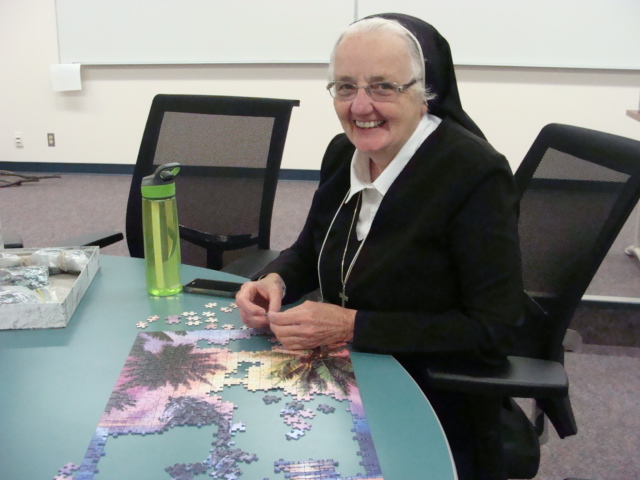Ordinary Times
Dorothy Day was an intellectual and a reformer, a Catholic and a peace activist, a refuge for the homeless and a challenger to the status-quo. She died in 1980 at the age of 83. Her cause for canonization has been introduced in Rome by Cardinal Dolan of New York where she spent most of her life. On May 1, 1933 Dorothy along with Peter Maurin published the first edition of The Catholic Worker paper and sold it for a penny a copy. The paper is still being printed and it still costs a penny a copy.
One of the features of the paper was Dorothy’s column, called “On Pilgrimage”. It was basically a personal journal of Dorothy’s travels around the country or of activities from The Catholic Worker Houses which were also around the country. The topics she described were usually mundane and exceptionally ordinary. Through Dorothy we learned about the Hunts Point market where the New York Catholic workers got their vegetables cheap, the bus stop in Cincinnati, the people who stopped by to volunteer at St. Joseph’s House in New York, or a book she was reading.
Dorothy’s column taught a generation of Catholics. It was an education in the spirituality of the ordinary. Through the facts and personalities who flowed through the column, Dorothy taught others to see Christ, not only in the breadline but in every circumstance of life.
The gospel of Jesus Christ is either meaningful in the most mundane of life’s issues and events or it is not meaningful at all. As we exit the Christmas season and the celebrations of the Incarnation of Jesus in Bethlehem over two thousand years ago, we embark on celebrating the adult Christ, in his own time and in ours. We listen to the gospel stories of healings and miracles, of water becoming wine and a little girl being raised from the dead. We see what happened when people accepted Jesus and what occurred when they rejected him. We learn compassion in his compassion, endurance in suffering in his endurance, death and resurrection in his own crucifixion and resurrection.
Jesus lived about thirty-three years on this earth and we have only a handful of stories and details of those years. Most of Jesus’ life was in Nazareth where he lived, the son of God and savior of all people in humble unrecorded ways. In other words, he lived as most of us do, far from the limelight and public eye. Our lives are no less important than Jesus’. Because of his Incarnation, we are called to be his presence today in the events and people who surround our ordinary days. Just as it happened to Jesus, there will be times when we must step from the crowd and act as gospel people; and it may cause us trouble and rejection. But, by and large, most of our days will be spent humbly trying to do the right thing for the sake of Jesus and in the company of Jesus.
We begin the ordinary time in the Church’s year of grace. The big feasts are over; decorations and stables are put away for another year. Now the work of the Incarnation begins. Jesus Christ enters into ordinary lives, making them and us extraordinary.
Article first published by the Rhode Island Catholic.
